WHITE PAPER: What’s missing in women’s health?
March 9, 2021 | endometriosis, medication shortages, women's health
In July of last year, amidst stories in the press around HRT and contraception shortages, endometriosis going undiagnosed and unsafe medical devices being offered to women, we wrote an edition of MAGNIFI investigating the common theme between these stories – women were being let down when it came to their healthcare. Now, in 2021 for endometriosis awareness month, we are resharing this article and again asking the question: ‘what’s missing in women’s health?’
This white paper was initially published on the 9th July 2020, while the broader themes are still relevant, information on HRT stock issues may no longer apply.
Have you ever experienced an illness or condition that made your everyday life a struggle?
Now imagine after months of trial and error, you find that one drug that perfectly manages your symptoms, allowing you to live your life again.
Then picture yourself suddenly losing access to that medication with no explanation and very little information on when it may return.
For many women in the UK, this is the reality. Stocks of vital medications, including hormone replacement therapy (HRT) – a treatment for the debilitating side effects of menopause – have been at critically low levels since 2018.1
Since then, the problem has only worsened, expanding to some of the most popular brands of HRT on the market and more recently to various forms of hormonal contraception.
Although forecasts suggested that the situation would start to improve by February this year,2 these predictions pre-dated the UK’s definitive exit from the EU, not to mention the coronavirus outbreak, both of which may mean that supply issues could get worse before they get better.
As many of the worst affected medications are aimed at women, questions are raised as to whether this is just a coincidence or part of a deeper problem.
Outrage has grown in recent years as a response to topics such as: the lack of awareness around endometriosis; the vaginal mesh scandals and the taxing of sanitary products as ‘luxury items’. Ultimately, questions are being raised as to whether we are taking the concerns of women seriously enough.
In this MAGNIFI, we attempt to unravel the confusion around the HRT crisis and ask whether this points to a bigger issue in the industry of neglecting women’s health.

Understanding the problem
In order to get to grips with the impact of these shortages from a women’s health perspective, it is worth understanding some of the key therapeutic areas affected:
Hormone Replacement Therapy
HRT is a systemic treatment for the symptoms of menopause. It works
by providing a supply of oestrogen to supplement the natural deficit that characterises the menopausal transition.3 HRT stands out from alternative treatments as it directly replaces the deficient hormone, while most competitors work by relieving individual symptoms.4
NICE guidelines recommend transdermal patches as the safest form of administration for women with a high risk of complications such as VTE.5 Patches are also the form most severely impacted by the shortages.2
Contraception
Contraceptive pills in short supply include several forms of the combined synthetic oestrogen and progesterone daily pills and progesterone only pills.6 While pills remain the most popular method of hormonal contraception in the UK,7 women are increasingly opting for long-acting alternatives. These include synthetic progesterone injections administered every 8 to 10 weeks, by a healthcare professional (HCP).8
Until recently, the inconvenience of regular doctors’ appointments could be avoided by opting for self-injectable contraceptives that are marketed as being more easily incorporated into everyday life.9
However, these medications have been out of stock since August 201910 and with no true alternative, women are having to revert to GP visits, creating a burden both on the health service and on women themselves.
Other medications affected
Antidepressants are another form of medication faced with shortages in the previous year.11
Although by no means a women’s only problem, poor mental health is cited by the WHO as one of the biggest issues impacting women globally.12
From conditions such as anxiety and depression, to more event-specific traumas such as perinatal loss, women’s health should be looked at from the perspective of mind as well as body.

What is known about the shortages so far?
At first glance, the cause of these shortages is less than clear. There is not one overarching explanation given but contributing factors include:
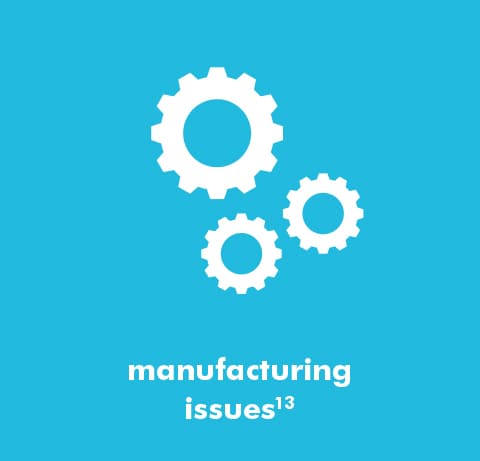
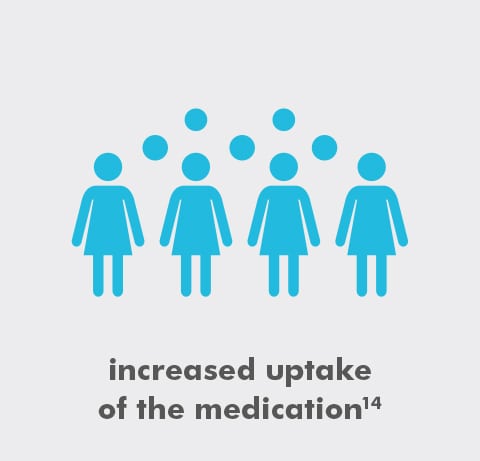
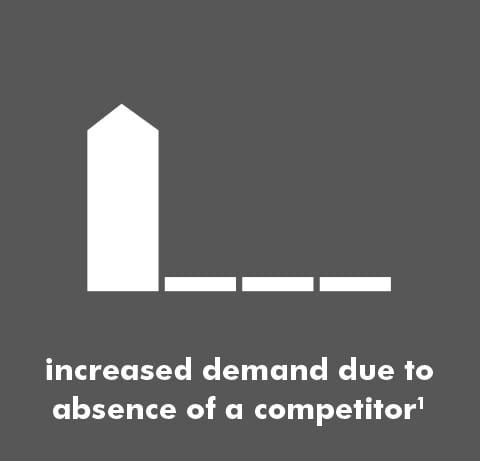
However, with drug shortages and scarcities both increasing in the past year,15 is this more than a coincidence?
How is this situation impacting women?
A common misconception is that these shortages are being over-dramatised, as there are far more medications left on the market, particularly in the case of contraception.
When their current prescription is unavailable, women are left with the following options:
1. Change to an alternative medication
Where possible, women should be given the option to switch to the
closest possible alternative.
Thanks to the introduction of new ‘serious shortage protocols’ (SSPs), pharmacists will be able to prescribe a suitable alternative with agreement from the patient.16 This bypasses the need to obtain a second prescription
from a GP, with the intention of providing quicker access to medication and lessening the impact on the health service.
Nevertheless, switching medication is not as easy as it sounds. As many of these medications involve hormonal supplementation, the next best alternative on paper may have a completely different profile of side effects in the patient.
In terms of contraception, with the well-documented side effects and
risks,17 many women see choosing a form of birth control as accepting the least worst option. Understandably, this would make them reluctant to go through the process again.18 And in cases such as self-injectable contraceptives, a true alternative may not even exist.
With HRT, there is the issue that each prescription is very specific in terms of dosage and counterbalancing hormones. This protocol was put in place in response to an infamous study19,20 that argued that the risks of HRT treatment outweigh the benefits.
The BMS therefore recommend that where possible, GPs prescribe oestrogen and progestogen separately in order to more closely match the patient’s initial prescription.2
2. Go without
Faced with uncertainty around alternatives and the prospect of endless GP visits, some women will decide to go without their medication all together.
Within the HRT market, the absence of patients’ initial prescriptions has increased demand on the alternatives. Stocks of these alternatives are now starting to run low as well, making it progressively hard to access any suitable treatments at all.
In a press release by the Royal College of Obstetricians and Gynaecologists (RCOG), BMS and Faculty of Sexual Health and Reproduction (FSRH),21 concerns were expressed that these shortages will have the greatest impact on the most vulnerable in society. Particularly in regard to contraception access, this could create a burden on mental health and a potential rise in unplanned pregnancies and abortions.21
Further afield, in late 2019, the Department for International Development announced plans to supply £600 million in order to fund access to family planning for women in developing countries.22
The UK clearly places a high importance on access to contraception and the freedom of choice for vulnerable women, so why does it feel like the UK is taking a step backwards on home turf?
The overlooked women
With all of the conversation around HRT, there is one group of women that is consistently missed out of the narrative.
In the UK, HRT is often commonly prescribed off label to patients wanting to undergo a male to female gender transition.23 The main principle is to provide an external supply of oestrogen to mimic the natural changes of puberty in women.24
Given the nature of this treatment, missing doses of medication is likely to have a visible effect on these patients, particularly when you consider that gender identity is such an integral part of their mental well-being25
If transgender women aren’t even mentioned in the conversation around HRT, who is going to advocate for their well-being?

The societal viewpoint
Many women have found themselves questioning how the issue has been allowed to develop this far.
One argument is that the current lack of understanding of women’s health issues in the general public feeds into a general underestimation or even dismissal of the problem within the healthcare industry.
It’s fair to say that in the UK, our awareness around the impact of menopause leaves a lot to be desired. With the topic (until recently) absent from mainstream sex education in schools,26 many of us won’t give a thought to menopause until it impacts us directly.
This feeds into a general misunderstanding of what menopause involves. When most people hear the word menopause, they think of physical symptoms like hot flushes and night sweats. Whereas when describing their own symptoms, many women highlight the psychological impact. Changes to the mind and body can mean that women no longer feel ‘like themselves’ alongside experiencing debilitating brain fog and even spells of depression.27
There is also the harmful train of thought that as health issues such as menstruation and the menopause are a natural part of life, is it really necessary to treat them?
In part this probably stems from an underestimation of the severity of symptoms combined with a lack of exposure to women’s first-hand accounts, together resulting in women’s health becoming a taboo topic.
Shockingly there have been reports of this attitude extending to HCPs
with women describing their GPs as not taking their symptoms seriously enough and reluctant to prescribe HRT overall.28
There are worries that this associated stigma around women’s health subconsciously permeates into the opinions of those in the healthcare
industry and could be why several women’s groups are arguing that the medication shortages are not being given the appropriate response.
The gender pain gap
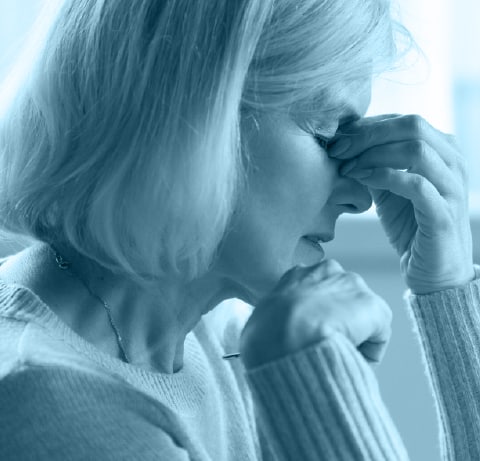
This dismissal or ignorance towards women’s suffering within the healthcare industry is not a new idea, with the term ‘gender pain gap’ coined to describe the phenomenon of HCPs responding poorly to conditions in which women self-report their own pain.29
In the pharmaceutical industry, this is demonstrated by the recent surge in lawsuits against pharma companies for the poor regulation of vaginal meshes.30 Lack of regulations lead to many of the devices malfunctioning, leaving women with chronic pain or even sepsis.30 These unregulated products shockingly remained on the market for 20 years, before finally being removed or withdrawn from sale in 2018,31 despite public safety concerns dating back to 2003.30
Another scandal recently brought to the forefront by BBC is the lack of knowledge around endometriosis. As described in the article,32 endometriosis is a condition that involves endometrial tissue growing in other areas of the body, predominantly around the bladder and reproductive organs. This tissue can then build up and bleed like normal endometrial tissue, causing inflammation and excruciating pain.32
The most surprising aspect of this condition is that endometriosis affects 1 in 10 UK women,32 making it roughly as common as diabetes.32,33
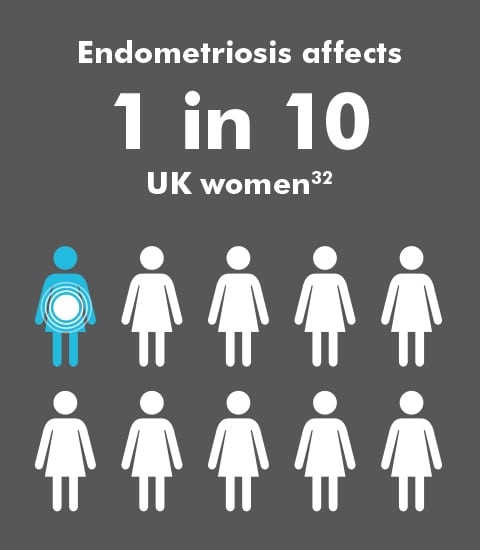
Despite this, GPs often have very little knowledge of the condition.34 Combining this with the fact that endometriosis pain is often mistaken for similarly presenting conditions, the average time to an endometriosis diagnosis is 7 to 8 years.32
So why aren’t more people talking about it?
What can be done going forward?
Looking for a silver lining in the situation, Dr Louise Newson, GP and Menopause Specialist and a prominent voice in the field of HRT, says that women should use the shortages as an opportunity to review their current HRT therapy and find the best option for them.6
While this may be true, there is still more that needs to be done to address the current crisis. In light of the recent shortages, women’s health groups are lobbying for a working group to be set up in order to address these supply constraints.35
As a more immediate resource, the British Menopause Society (BMS) has produced a document36 for HCPs and other society members listing the most appropriate alternative treatments to those in short supply. It is hoped that this might streamline the prescription process.
Action also needs to be taken to readdress the issues with women’s health overall. One way this is happening is through news articles, such as the BBC’s reporting on endometriosis which is helping to bring the topic into the public eye.
“Another is through the increasing prevalence of women-centric healthcare companies that advocate for the cause and focus in on these neglected conditions.
– Dr Louise Newson BSc(Hons) MBChB(Hons) MRCP FRCGP GP and Menopause Specialist
However, it’s not all bad news for women’s health. At the time of writing, the new 2020 budget has just been announced and along with it the highly anticipated abolishment of the tampon tax.37
Outrage at the tax has been vocal online with the prominent argument being that tampons are an unavoidable essential, not ‘luxury goods’ as they were taxed as in various countries.38 This is a perfect example of the ability of social media to mobilise public opinion in a productive and transformational way.
Perhaps the way forward is to force the topic of women’s health into the spotlight? With the power of social media activism, maybe the general public are the most equipped of all to force the healthcare industry to listen.

About the author
Rebecca Dargue, Health Science Content Writer – IGNIFI
Rebecca is a graduate from the University of East Anglia with a first class degree in Biomedicine, an MSc with distinction in Molecular Medicine and a passion for communication.
References:
Pharmaceutical Review. https://www.europeanpharmaceuticalreview.com/news/97582/hrt-shortage-in-uk-expected-to-continue-until-next-year/. Published 2019. Accessed March 4, 2020.
2. Hamoda H. British Menopause Society further update on HRT supply shortages – 27th January 2020. https://thebms.org.uk/2020/01/british-menopause-society-further-update-on-hrt-supply-shortages-27thjanuary-2020/. Published 2020. Accessed February 25, 2020.
3. Hormone replacement therapy (HRT). NHS. https://www.nhs.uk/conditions/
hormone-replacement-therapy-hrt/. Accessed March 4, 2020.
4. Menopause – Treatment. NHS. https://www.nhs.uk/conditions/menopause/
treatment/. Accessed December 23, 2019.
5. Menopause. NICE CKS. https://cks.nice.org.uk/menopause#!backgroundSub.
Accessed January 6, 2020.
6. Harman C, Bower E. GPs may need to switch patients’ HRT as shortages set
to increase. GP Online. https://www.gponline.com/gps-may-need-switchpatients-
hrt-shortages-set-increase/womens-health/menopausal-and-hrt/article/1593413. Published 2019. Accessed February 25, 2020.
7. Davis N, McIntyre N. Revealed: pill still most popular prescribed contraceptive
in England. The Guardian Online. https://www.theguardian.com/uknews/2019/mar/07/revealed-pill-still-most-popular-prescribed-contraceptivein-england. Published 2019. Accessed March 5, 2020.
8. The contraceptive injection. NHS. https://www.nhs.uk/conditions/contraception/contraceptive-injection/. Accessed March 5, 2020.
9. SAYANA PRESS 104 mg/0.65 ml suspension for injection – Summary of
Product Characteristics (SmPC). EMC. https://www.medicines.org.uk/emc/
product/3148/smpc. Date accessed May 4, 2020.
10. Sayana® Press UK Supply Issue (medroxyprogesterone acetate 104mg/0.65ml suspension for injection in the UnijectTM injection system). Primary Care Women’s Health Forum. https://pcwhf.co.uk/news/sayana-press-uk-supplyissue/. Published 2019. Accessed March 5, 2020.
11. HRT and antidepressant shortages prompt export ban and pharmacist
scrip-switching. MIMS. https://www.mims.co.uk/hrt-antidepressantshortages-
prompt-export-ban-pharmacist-scrip-switching/womens-health/
article/1661420. Published 2019. Accessed March 5, 2020.
12. Bustreo F. Ten top issues for women’s health. World Health Organisation.
https://www.who.int/life-course/news/commentaries/2015-intl-womens-day/
en/. Published 2016. Accessed March 5, 2020.
13. Pfizer update on Sayana Press shortages. Faculty of Sexual and Reproductive Healthcare (FSRH). https://www. fsrh.org/news/pfizer-update-on-sayanapress-shortages/. Published 2019. Accessed March 5, 2020.
14. Evans M. Why is there an HRT shortage in the UK? Patient. https://patient.info/news-and-features/why-is-there-an-hrt-shortage-in-the-uk. Published 2019. Accessed March 5, 2020.
15. Rees V. UK records 178 medicine shortages in 2019, say reports. European
Pharmaceutical Review. https://www.europeanpharmaceuticalreview.com/news/110704/uk-records-178-medicine-shortages-in-2019-say-reports/. Published 2020. Accessed March 5, 2020.
16. National Health Service England. The National Health Service (Amendments
Relating to Serious Shortage Protocols) Regulations 2019. GOV UK. 2019. No.
990. http://www.legislation.gov.uk/uksi/2019/990/made. Published June 7, 2019. Accessed May 4, 2020.
17. Pletzer BA, Kerschbaum HH. 50 years of hormonal contraception – time to
find out, what it does to our brain. Front Neurosci. 2014;8. https://www.ncbi.nlm.nih.gov/pmc/articles/PMC4139599/pdf/fnins-08-00256.pdf. Published August 21, 2014. Accessed May 4, 2020.
18. Hinde N. There’s A Contraception Shortage. Here’s What You Need to Know.
HuffPost UK. https://www.huffingtonpost.co.uk/entry/contraception-shortagewhat-to-know_uk_5e3d2e8ec5b6b70886fdc1a3. Published 2020. Accessed March 5, 2020.
19. Rossouw JE, Anderson GL, Prentice RL, et al. Risks and benefits of estrogen
plus progestin in healthy postmenopausal women: Principal results from the women’s health initiative randomized controlled trial. J Am Med Assoc. 2002;288(3):321–333. doi:10.1001/jama.288.3.321.
20. Rossouw JE, Anderson GL, Prentice RL, et al. Risks and Benefits of Estrogen
Plus Progestin in Healthy Postmenopausal Women. Jama. 2009;288(3):321–333. http://www.ncbi.nlm.nih.gov/pubmed/12117397. Published 2009.Accessed February 27, 2020.
College of Obstetricians and Gynaecologists, British Menopause Society, Faculty of Sexual Health and Reproduction. https://thebms.org. uk/2020/02/rcog-bms-fsrh-statement-on-hrt-and-contraceptive-supply/. Published February 6, 2020. Accessed February 27, 2020.
22. Healthcare for Everyone Must Prioritise Women’s Sexual and Reproductive
Health and Rights, Says UK at UN General Assembly. UK Department for
International Development. 2019. https://www.gov.uk/government/news/healthcare-for-everyone-must-prioritise-womens-sexual-and-reproductivehealth-and-rights-says-uk-at-un-general-assembly. Published September 23,2020. Accessed February 27, 2020.
23. Unger C. Hormone therapy for Transgender Patients. Transl Androl Urol.
2016;5(6):877–884. doi:10.21037/tau.2016.09.04.
24. Gender dysphoria – Treatment. NHS https://www.nhs.uk/conditions/genderdysphoria/treatment/. Accessed March 5, 2020.
25. Simpson H. I’m scared of what the estrogen shortage might do to trans womenlike me. The Guardian. https://www.theguardian.com/commentisfree/2016/aug/13/estrogen-shortage-trans-women-impact. Published 2016. Accessed March 5, 2020.
26. Menopause lessons at school “an important victory”. BBC News. https://www.bbc.co.uk/news/uk-england-beds-bucks-herts-48885156. Published 2019. Accessed March 5, 2020.
27. Newson L. Menopause, Depression and Anxiety: Dr Louise Newson.
Menopause Doctor. https://www.menopausedoctor.co.uk/menopause/menopause-and-depression. Published 2018. Accessed March 5, 2020.
28. Price C. NICE urges GPs to overcome ‘reluctance’ to offer HRT in menopausal women. Pulse Today. http://www.pulsetoday.co.uk/clinical/clinical-specialties/womens-health/nice-urges-gps-to-overcome-reluctance-to-offer-hrt-inmenopausal-women/20030415.article. Published 2015. Accessed March 5, 2020.
29. Billock J. Pain bias: The health inequality rarely discussed. BBC Future. https://www.bbc.com/future/article/20180518-the-inequality-in-how-women-aretreated-for-pain. Published 2018. Accessed March 5, 2020.
30. Investigation exposes vaginal mesh “scandal” that has left thousands of
women irreversibly harmed. British Medical Journal. https://www.bmj.com/company/newsroom/investigation-exposes-vaginal-mesh-scandal-that-hasleft-thousands-of-women-irreversibly-harmed/ Accessed March 5, 2020.
31. Transvaginal Mesh Recalls, Discontinued Products & FDA Regulation. Drug
Watch. https:// www.drugwatch.com/transvaginal-mesh/recall/. Updated January 10, 2020. Accessed March 11, 2020.
32. Women with endometriosis ‘finally being believed’. BBC News. https://www.
bbc.co.uk/news/uk-england-beds-bucks-herts-51708887. Published 2020. Accessed March 5, 2020.
33. Us, Diabetes and a Lot of Facts and Stats. Diabetes UK. 2019. https://www.
diabetes.org.uk/resources-s3/2019-02/1362B_Facts%20and%20stats%20 Update%20Jan%202019_LOW%20RES_EXTERNAL.pdf. Accessed May 4,
2020.
34. Brown R. Raising awareness of Endometriosis. NICE. https://www.nice.org.uk/news/blog/raising-awareness-of-endometriosis. Published September 6, 2017. Accessed May 4, 2020.
35. Ongoing shortages of HRT and contraceptives remain unacceptable and continue to harm women, say professional bodies. Royal College of Obstetricians and Gynaecologists https://www.rcog.org.uk/en/news/ongoingshortages-of-hrt-and-contraceptives-remain-unacceptable-and-continue-toharm-women-say-professional-bodies/. Published 2020. Accessed May 4, 2020.
36. HRT Preparations and Equivalent Alternatives. British Menopause Society.
https://thebms.org.uk/2019/11/hrt-preparations-and-equivalent-alternatives/.
November 4, 2020. Accessed May 4, 2020.
37. Norman J. Budget 2020 – Delivering on Our Promises to the British People.
https://assets.publishing.service.gov.uk/government/uploads/system/uploads/
attachment_data/file/871799/Budget_2020_Web_Accessible_Complete.pdf
Published March 11, 2020. Accessed March 11, 2020.
38. The women who took on Germany’s tampon tax. BBC News. https://www.
bbc.co.uk/news/av/world-europe-50872819/taking-on-germany-s-tampontax-
periods-are-not-a-luxury. Accessed March 11, 2020.





